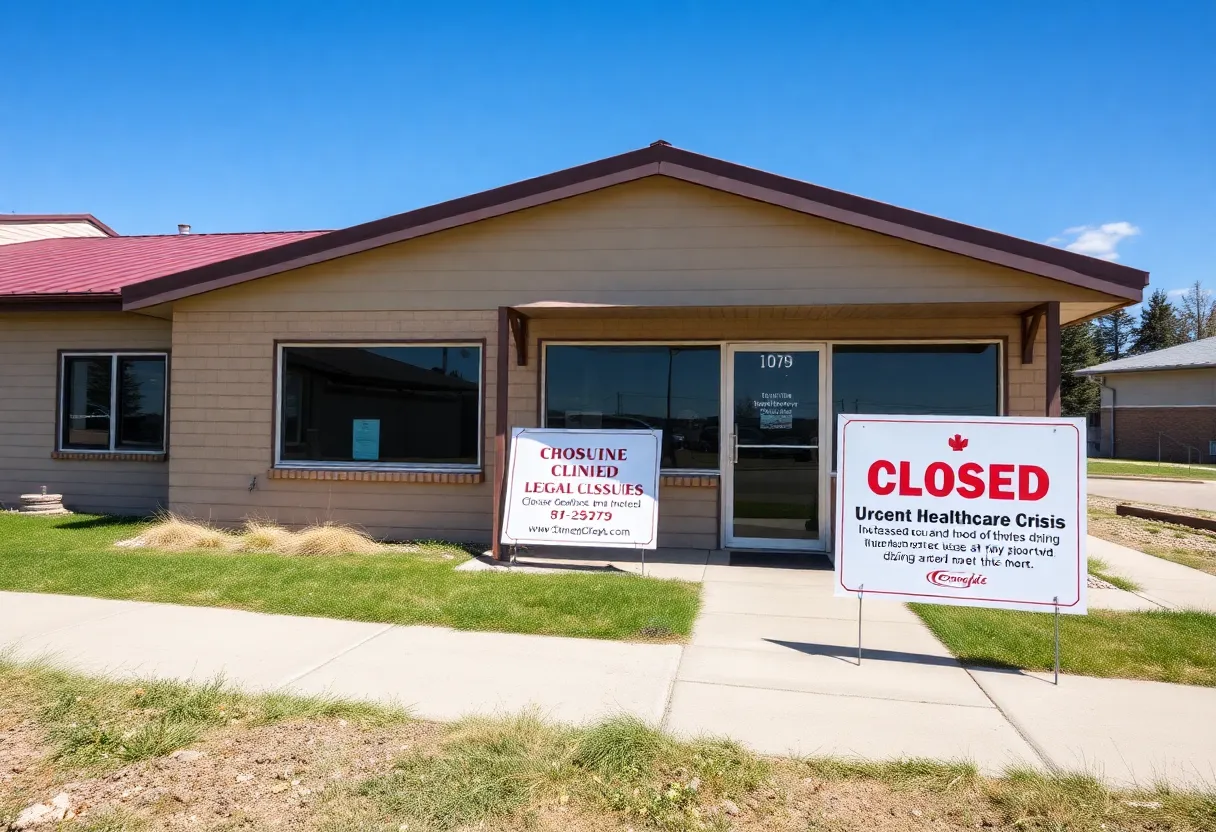News Summary
The closure of the Center for Asbestos Related Disease in Libby impacts residents reliant on its health services amidst legal and funding challenges.
Clinic Closure Leaves Libby Residents in the Lurch
The Center for Asbestos Related Disease (CARD), a critical health clinic in Libby, Montana, has closed its doors following a controversial court ruling linked to a lawsuit from BNSF Railway. This clinic provided essential health services to numerous residents impacted by the deleterious effects of asbestos exposure, including vital screening and monitoring for related illnesses.
Threats to Federal Funding
Compounding the clinic’s troubles is the potential cut of the federal grant that accounted for a staggering 80% of CARD’s operating revenue. Under the current administration’s proposed budget changes, the future of this funding remains precarious, putting a vital service on the brink of extinction.
The Personal Toll of Asbestos Exposure
One prominent figure in the Libby community is Gayla Benefield, an 81-year-old local resident afflicted with asbestosis. Her history exemplifies the grave health struggles faced by many in her community, where the legacy of asbestos exposure continues to loom large. Benefield’s father worked in a vermiculite mine, a primary source of asbestos, leading to widespread health issues. The mine ceased operations in 1990, yet the effects of its legacy are felt to this day, particularly following the findings from a 1999 investigation that highlighted the community’s severe health crises.
A Dark Legacy Unfolds
The Environmental Protection Agency (EPA) designated parts of Libby as a Superfund site in 2002, subsequently declaring a public health emergency in 2009—the first instance of its kind in U.S. history. Between 1979 and 2011, approximately 694 residents of Libby lost their lives to asbestos-related diseases, while current health estimates suggest that about one in ten residents have some form of related illness.
Services Impacted by Legal Battles
CARD, a nonprofit clinic, has provided free lung screenings to over 8,900 local residents and played a crucial role in identifying symptoms of asbestos-related diseases, which can take decades to manifest. The recent court judgment against CARD hinged on allegations from BNSF Railway that the clinic fraudulently diagnosed patients to assist them in obtaining Medicare benefits. This ruling claimed that over 300 patients were falsely certified for federal assistance, a development that has led to significant fallouts for the clinic.
A Community on Edge
The medical aspect of addressing asbestos-related illnesses requires specialized knowledge that many local physicians may not possess, leading to increased concern regarding access to healthcare following CARD’s closure. Caregivers in the area, like Jenan Swenson, are voicing worries over the future of screenings and care, underscoring the profound void left by the clinic’s exit.
Future of CARD Remains in Limbo
In response to the court ruling, CARD has filed for bankruptcy and is seeking to reclaim its assets, which BNSF claimed as part of the judgment. The U.S. Attorney’s Office for Montana has intervened, asserting that BNSF should not be able to seize clinic property purchased with federal funds. Meanwhile, a new federal grant worth $3 million has been awarded to the clinic for the period extending through August 2029, offering a glimmer of hope amid ongoing instability. Despite this, legal actions concerning allegations of wrongful death and medical malpractice against CARD are creating uncertainty in the clinic’s operational capacity.
Advocacy on the Rise
Local and federal officials are rallying against the closure of CARD, citing the vital role it played in providing essential health services to a community still reeling from the health impacts of asbestos exposure. As time moves forward, the cries for help and assistance grow louder, demanding that the health and well-being of Libby’s residents not be forgotten.
As this intricate web of legal, financial, and health issues continues to unravel, the townspeople of Libby remain on edge, uncertain of what the future holds while grappling with the long-term consequences of their shared history with asbestos.
Deeper Dive: News & Info About This Topic
HERE Resources
The Looming Danger: Asbestos Regulations in Jeopardy
Potential Asbestos Ban Under Review as Health Risks Persist
EPA Seeks Pause in Asbestos Regulation Litigation Amid Industry Concerns
School District of Philadelphia Faces Federal Charges Over Asbestos Violations
Mounting Concerns Over Asbestos Use in America
Groundbreaking Criminal Charges Against Philadelphia School District Over Asbestos Mismanagement
EPA’s Daring Move: Reconsideration of Chrysotile Asbestos Ban Raises Alarms
The Hidden Dangers of Talc and Its Connection to Cancer Risks
Paradise Hills Pool Shuts Down for Mold and Asbestos Cleanup
South Carolina Supreme Court Delivers Major Blow to Atlas Turner in Asbestos Case
Additional Resources
- Daily Interlake: Sale of Libby Asbestos Clinic’s Assets on Hold
- Wikipedia: Asbestos
- Flathead Beacon: Montana Asbestos Clinic Fights for Its Life
- Google Search: Asbestos Health Effects
- AP News: Libby Montana Asbestos Clinic Shuttered
- Google Scholar: Libby Asbestos
- Asbestos.com: Clinic Helped Libby Survivors Shuttered
- Encyclopedia Britannica: Asbestosis



















